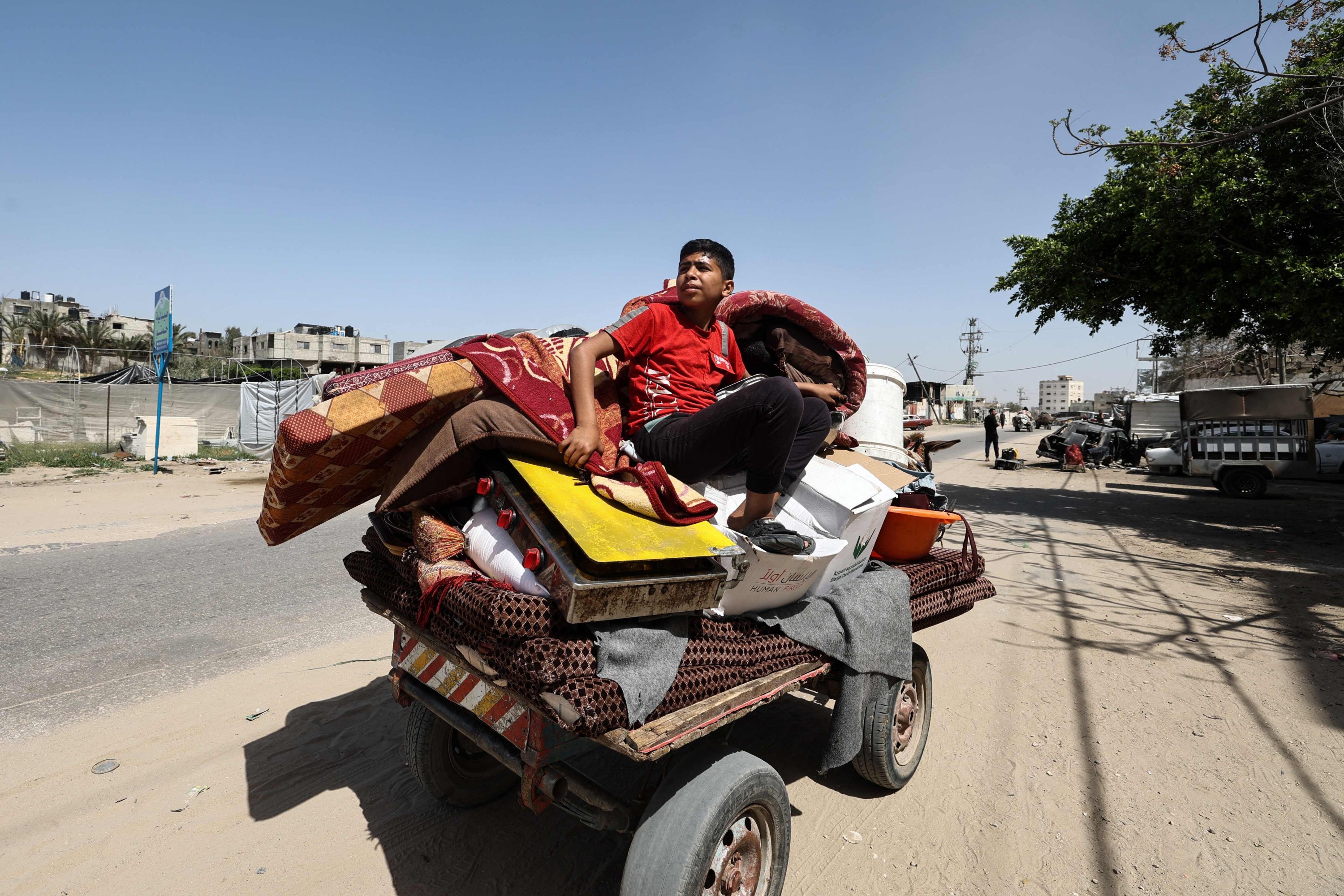© Turkuvaz Haberleşme ve Yayıncılık 2026
Israeli Defense Minister Israel Katz declared Wednesday a significant escalation of military operations in Gaza, outlining plans for the army to capture "large areas" of the Palestinian territory.
Katz said Israel would bolster its presence in the Gaza Strip to destroy and clear the area of Palestinian resistance groups and their infrastructure.
The operation would "seize large areas that will be incorporated into Israeli security zones," he said in a statement, without specifying how much territory.
A group representing families of hostages held in Gaza said they were "horrified" by Katz's announcement, fearing the goal of freeing the captives had been "pushed to the bottom of the priority list."
"Has it been decided to sacrifice the hostages for the sake of 'territorial gains?'" said the Hostages and Missing Families Forum in a statement.
"Instead of freeing the hostages through a deal and putting an end to the war, the Israeli government is sending more soldiers to Gaza, to fight in the same areas where they have fought again and again."
Katz last week warned the military would soon "operate with full force" in more parts of Gaza.
In February, he announced plans for an agency to oversee the "voluntary departure" of Palestinians from Gaza.
That followed Israel's backing of a proposal from U.S. President Donald Trump for the United States to take over the territory after relocating its 2.4 million Palestinian inhabitants.
Israel resumed intense bombing of Gaza on March 18 before launching a new ground offensive, ending a nearly two-month cease-fire.
Gaza's civil defense agency said Israeli airstrikes killed at least 15 people, including children, in Khan Younis and the Nuseirat refugee camp at dawn Wednesday.
The Health Ministry in Gaza said Tuesday that 1,042 people had been killed in the territory since Israel resumed military operations, bringing the overall toll since the genocidal war began on Oct. 7, 2023 to at least 50,399 people, the majority of them civilians.
Hunger loomed in Gaza City as bakeries were shut due to severe shortages of flour and sugar.
"I've been going from bakery to bakery all morning, but none of them are operating, they're all closed," Amina al-Sayed told Agence France-Presse (AFP).
Mahmud Sheikh Khalil said he couldn't find bread for his children.

"The situation is very difficult in Gaza, there is no flour, no bread, no food or water," he said.
On March 2, Israel blocked all aid from entering Gaza and later cut power to one of its main desalination plants.
The idea of forcing Gazans to leave for neighbouring countries, including Egypt and Jordan, first floated by Trump, has been backed by right-wing Israeli politicians, including Prime Minister Benjamin Netanyahu.
On Sunday, Netanyahu offered to let Hamas leaders leave Gaza but demanded the group abandon its arms.
The Israeli leader has rejected domestic criticism that his government – one of the most right-wing in Israel's history – was not doing enough to secure the hostages' release.
"We are negotiating under fire ... We can see cracks beginning to appear" in Hamas's positions during ceasefire talks, he told his cabinet.
In the "final stage", Netanyahu said: "Hamas will lay down its weapons. Its leaders will be allowed to leave."
Hamas has signaled willingness to step down from ruling Gaza but calls disarmament a "red line."
Egypt, Qatar and the United States are attempting to again broker a cease-fire and secure the release of Israeli hostages still held in Gaza.
A senior Hamas official said Saturday the group had approved a new cease-fire proposal and urged Israel to back it.
Netanyahu's office confirmed receiving the proposal and said Israel had submitted a counteroffer. The details remain undisclosed.
The United Nations condemned Tuesday an Israeli army attack on an emergency convoy that killed 15 aid workers and medical personnel and demanded an investigation.
"I condemn the attack by the Israeli army on a medical and emergency convoy on 23 March resulting in the killing of 15 medical personnel and humanitarian workers in Gaza," U.N. High Commissioner for Human Rights Volker Türk said.
The war was sparked by Hamas's Oct. 7, 2023, incursion into Israel, which caused 1,218 deaths, according to Israeli official figures.
